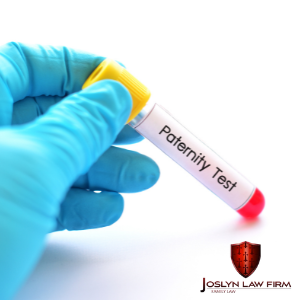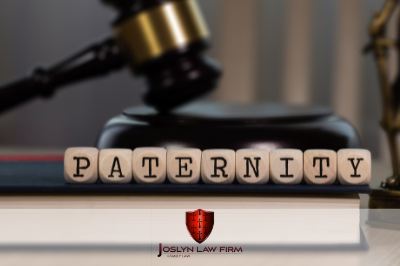Ohio Paternity Lawyer
 Parenting can be one of the most rewarding experiences in a lifetime. If you are expecting a child or just welcomed one into your family, you may feel overjoyed and have all the support you could ever hope for. There are situations, however, where unmarried parents find themselves in difficult situations either before or after the child is born. Paternity is often a big part of these issues.
Parenting can be one of the most rewarding experiences in a lifetime. If you are expecting a child or just welcomed one into your family, you may feel overjoyed and have all the support you could ever hope for. There are situations, however, where unmarried parents find themselves in difficult situations either before or after the child is born. Paternity is often a big part of these issues.
Hiring An Attorney To Establish Paternity In Ohio
If you are a mother or father and want to establish paternity, hiring an experienced family law attorney is the best way to ensure the best outcome for your case. At Joslyn Law Firm, we understand paternity cases well and know that each case is unique and that every client has a different story. In Columbus, Ohio, lead attorney Brian Joslyn and his team are known as some of the finest lawyers in the area. Rue Ratings, a highly prestigious organization dedicated to finding and promoting the finest legal representation in the country, selected Brian Joslyn as one of the Best Attorneys in the United States. He was also nominated by The National Trial Lawyers Association as a Top 100 Trial Attorney. When you work with Joslyn Law Firm, rest assured that you are in good hands. Call us today at (888) USA-RIGHTS to schedule your free consultation or contact us online.
We serve clients in Franklin, Pickaway, Delaware, Licking, Madison, Union, and Fairfield counties.
Ohio Paternity Information Center
What Is Paternity And Why Does It Matter?
When a husband and wife are married before they choose to have children, the law generally presumes that the husband is the biological father of the child. In these common circumstances, neither parent needs to do anything legally. From a societal and legal standpoint, it is assumed that the child is a product of the marriage and that the father claims the child as his. Marriage establishes the biological and legal relationship between the father and child.

There are indeed times when paternity cannot or should not be established. Often this happens because the father cannot be found or the mother does not wish to contact the father for some reason. If either of these situations pertains to you, paternity may not be a legal situation that applies to you.
However, unestablished paternity can result in long-term consequences for the mother, father, and child. These consequences stem from the general idea that parents have a fundamental right to care for and take responsibility for their children.
Fundamental Right To Parent Children
The United States Supreme Court and the state of Ohio have determined that parents are in the best position to raise their children and should be given preference above all others in making decisions for them. Along with the blessings of parenting comes the responsibilities. As a parent, you know that having children means far greater expenses, doctor visits, late nights, and other difficulties. Having children means being a parent is a right for both the mother and father.
Consequences For Parents And Children When Paternity Has Not Been Established
There are three common scenarios that we see in our office that impact mothers, fathers, and children when paternity is not established.
Fathers
The first scenario involves a father who wants to be involved in his child’s life but does not have paternity established. Sometimes mothers will use the child as a bargaining piece out of anger and other relationship problems. The mother often knows that the law does not require her to give the child to the father unless paternity has been established.
Mothers
The second scenario involves a mother who is struggling financially to raise her new child. The father provides minimal or inconsistent financial support for the child, or perhaps he is not in the picture. Feeling frustrated by all the expenses, she wants the father to start paying his share. Unless paternity is established, the law does not require fathers to pay child support to mothers to help support their children.
A third scenario involves mothers contacting us because fathers threaten to take away the child. The threat usually comes from past relationship issues, including anger, jealousy, or resentment. Often, the father wants to hurt the mother somehow and uses the child as a bargaining piece. The mother is likely unaware that she is not required to give the child to the father if his paternity has not been established.
Children
When paternity isn’t established, there can be long-term consequences to children who might otherwise benefit. Because of strained relationships between parents, the consequences for children can be the most overlooked. Children can be impacted in many ways, including:
- Limited or no connection with their fathers;
- Fewer financial resources; and
- Being in the middle of their parents’ strained relationship.
It can be easy to think that children, especially young ones, may not notice the negative impacts of unestablished paternity. As they grow older, however, they become more observant. They begin to see problems arising from their parents’ prior relationships or issues pertaining to the lack of resources that a father may offer.
Our Columbus paternity attorneys can assist you whether you are going through a divorce, legal separation, or other parental rights matter. You can rely on our family law attorneys to treat your sensitive parental rights issue with the dedication and compassion it needs. Indeed, our family law attorneys are committed to taking the time to explain your parental rights and answer any questions you may have. Contact our Columbus family lawyers to learn more.
Methods To Establish Paternity
There are three general ways for fathers or parents to establish paternity, a signed affidavit, genetic testing, and a court order establishing parentage.
Signed Acknowledgement of Paternity
If the parents are not married, the most efficient and lawful way to establish paternity is for both parents to agree that the father and child are related. Staff can provide parents with paperwork if the birth is at a hospital. Through a signed affidavit, both parents acknowledge the father as the biological father and file the document with the Child Support Enforcement Agency. Genetic testing isn’t required. Instead, the parents’ agreement is all that is needed.
Although signing and submitting all necessary forms at the hospital can be beneficial, it is completely understandable if parents do not wish to go this route. After all, a new baby is exciting, and there may be many other things on the parents’ minds that do not involve legal documents. Thankfully, the affidavit can be signed and submitted to a child support agency after the birth.
Benefits And Drawbacks
Establishing paternity through this method can be very cost-effective and is often a great solution for parents who get along or at least agree to work collaboratively for the child’s well-being. By acknowledging the child as his, the mother agrees that the father has a right to the child, and the father acknowledges that he may owe child support to the mother.
Depending on the viewpoint, this method can have other benefits and drawbacks. In Ohio, the law presumes that the man who signed the affidavit is the child’s biological father. The presumption makes it more difficult to take back the acknowledgment and end child support payments. Whether you are the mother or father, it is in your best interest to receive sound legal advice regarding the pros and cons of acknowledging paternity before you and the other parent sign and submit the document.
Learning That The Man Who Acknowledged The Child Is Not The Father
Sometimes families learn well birth that a child has different parents than once believed. This can happen in many ways. Either the mother learns or admits that someone else could be the father; the real biological father learns of his child, or the presumed father who signed an affidavit learns that he is caring for another man’s child.
Any of the above scenarios can bring out some strong emotions. If you are in any of those places and believe that you may need legal help, please contact Joslyn Law Firm. Depending on your role in the case and the unique circumstances, our attorneys can help you build a strong case to protect your rights. These cases can go any number of ways, but generally, confirming the biological father’s identity is the place to begin.
Genetic Testing Through The Child Support Enforcement Agency
Paternity cannot always be established by signing an affidavit. This can happen for many reasons. Sometimes mothers will prevent fathers from signing, fathers will refuse to sign, or the father’s identity is unclear but suspected.
If establishing paternity has become difficult, the mother or suspected father can file a petition with the Child Support Enforcement Agency (CSEA). The suspected father will participate in genetic testing. If the results are at least a 99% match, the agency will issue a paternity order naming the parents and outlining child support obligations. This order has the impact of a court order, so parents who do not take it seriously can suffer serious consequences down the road.
Mothers and fathers can have different reasons for requesting genetic tests. Mothers may request them as a method for obtaining child support. Fathers may want to request them to have an easier time obtaining visitation in the future. Because these orders determine paternity and child support payments, fathers will likely need to establish formal visitation through another court case.
What If One Parent Refuses To Participate in Genetic Testing in Ohio?
Despite the authority of the CSEA to issue orders and hold formal hearings on paternity actions, some parents will still refuse to participate in the proceedings or follow an order. The other parent, sadly, remains frustrated. At this point, the frustrated parent’s final option is to request a court order establishing paternity.
Does Divorce Impact Paternity?
Usually, divorce and paternity do not meet. When children are born during a marriage, they are considered to be the biological children of the parents. In a divorce, any child support or custody disputes presume that the children involved are those that resulted from the marriage.
Divorce and paternity can collide under a few circumstances. If a husband and wife want to divorce and the wife gives birth within 300 days after the day the marriage ends, the law presumes that the husband is the child’s father. If you and your spouse are considering divorce, are expecting a baby, and both believe the child is part of the marriage, you and your spouse will likely address custody and child support in the usual manner.
Using Genetic Testing To Confirm You Are Not The Father
However, if you are the husband and you do not believe the baby is yours, it is essential that you contact a qualified family law and paternity attorney today. If you do not wish to be responsible for the child, you will likely need to contest paternity and show that you are not the father. This proof is shown through genetic testing. If you suspect the identity of the biological father, we can help you file a motion with the court and request that both you and the suspected father participate in genetic testing. If you delay too long, you may have a larger paternity battle to address later. It is best to consult an attorney when you suspect you are not a child’s father.
Hiring Superior Family Law And Paternity Attorneys In Ohio
The attorneys at Joslyn Law Firm are ready to answer your paternity questions and guide you on the path that suits the unique facts of your case. As an award-winning lawyer, managing attorney Brian Joslyn has the experience and skills needed to aggressively fight for you. When you are ready, please call our office at (888) USA-RIGHTS to schedule your free consultation or contact us online.
If you are a mother or father looking to establish paternity, hiring an experienced family attorney is the best way to ensure the best outcome for your case, we invite you to book a free consultation with one of our experienced paternity lawyers today.
We serve clients in Franklin, Pickaway, Delaware, Licking, Madison, Union, and Fairfield counties.
What Our Clients Say
Read this 5-star Google review below regarding a complex family law case in Columbus OH
“Very kind and caring attorneys and staff. Would refer to anyone in need of a family law attorney.”
By: Abby Farber
Rating: 5/5 ⭐⭐⭐⭐⭐
Read more reviews on Google!
This page was last updated by Brian Joslyn


